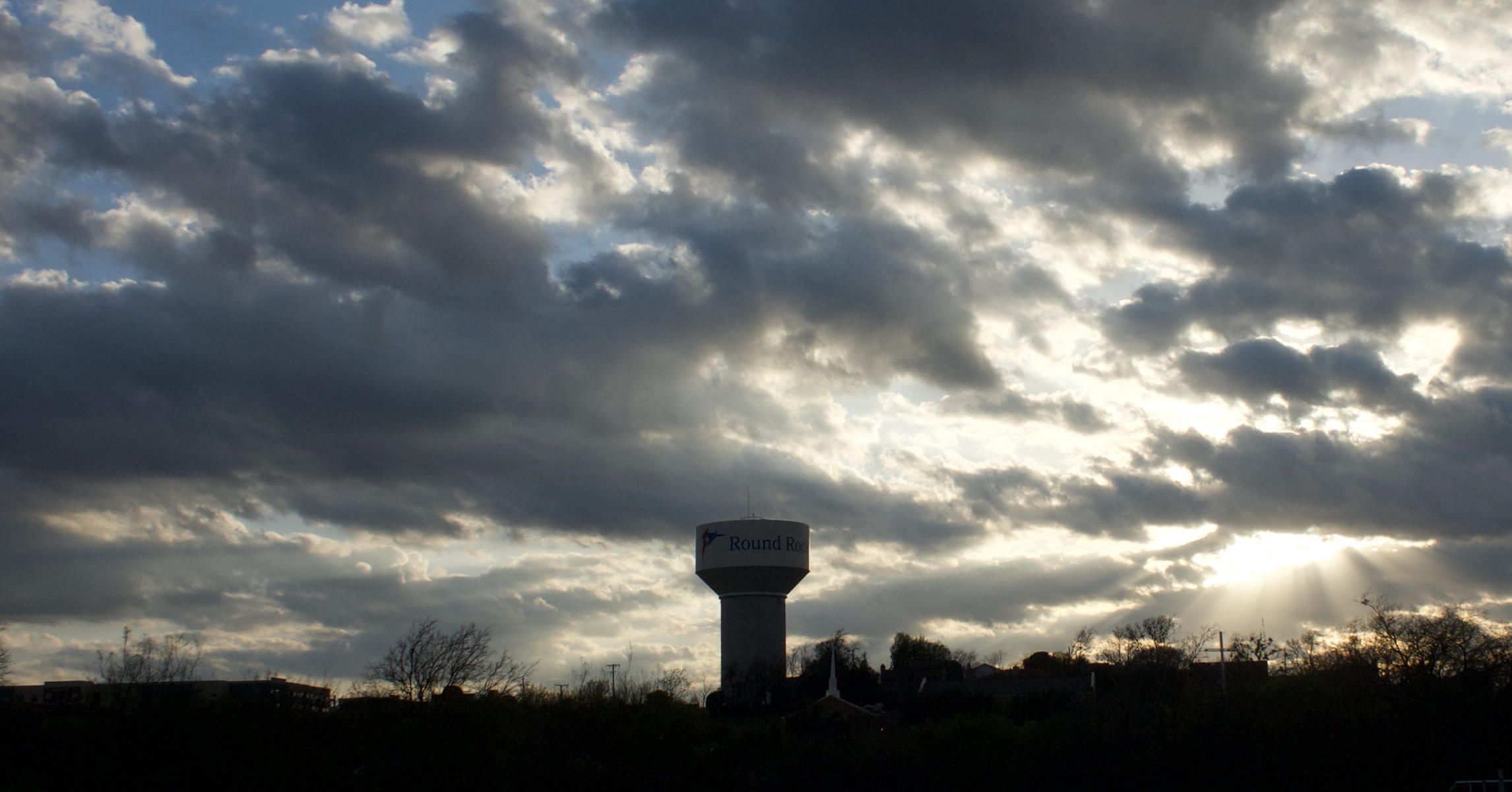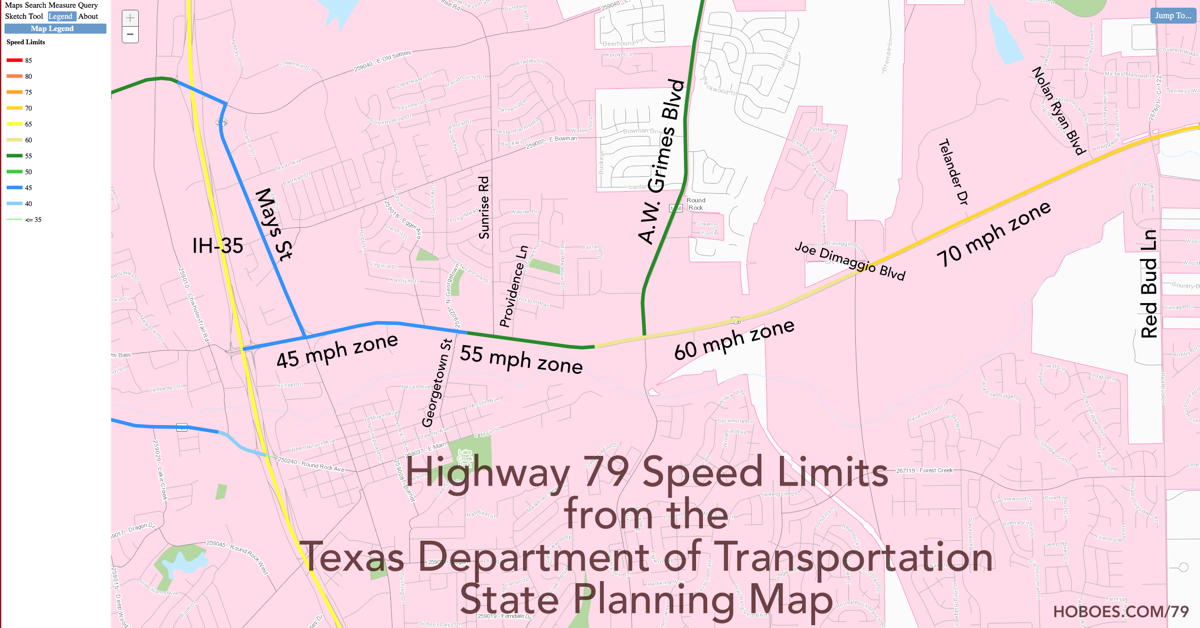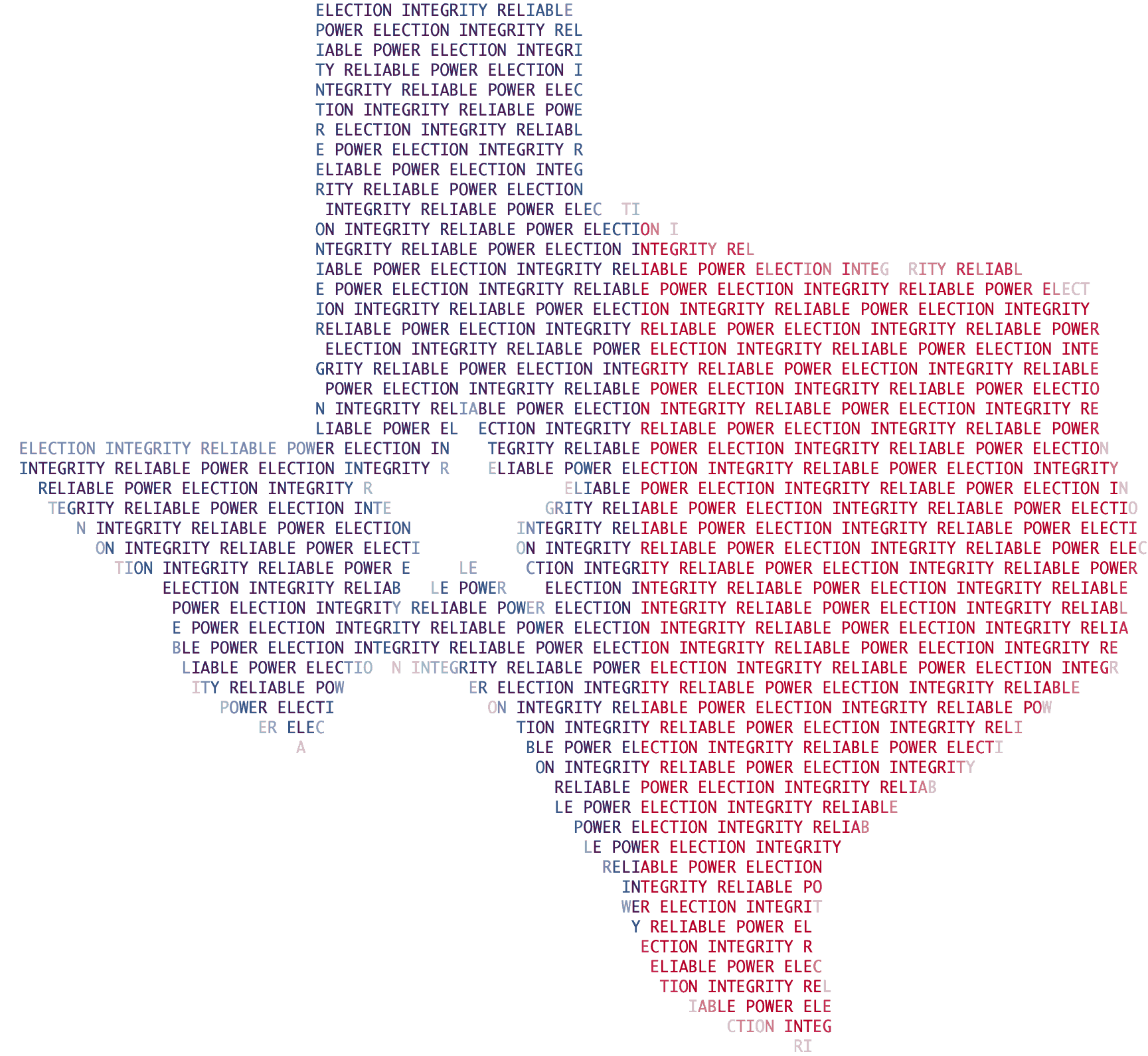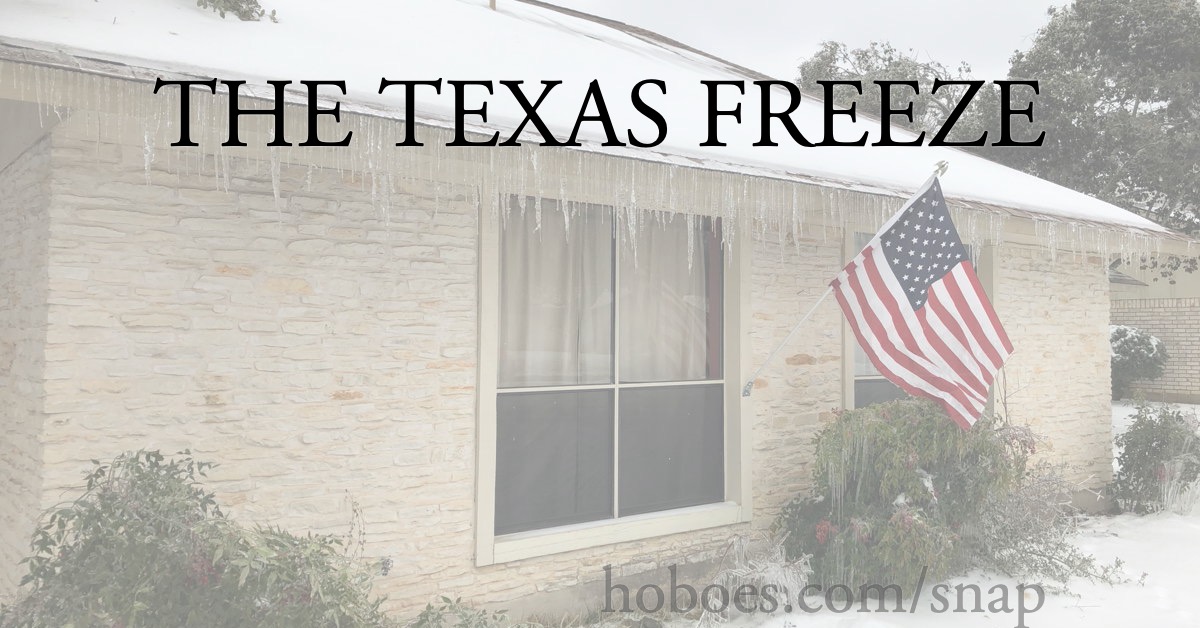Texas and Round Rock
- March 15, 2023: Texas 2023 legislative priorities
-
The legislature is in session; they are only in session once every two years. It’s getting past time for them to hear from us about what matters to Texans. My understanding is that all bills that will be submitted have been submitted. But there are a lot of them, covering most of the important issues in Texas today, so your representatives still need to hear from you.
I wrote these as separate letters; I don’t trust the ability of staffers to summarize a multi-topic letter.
Obviously, there are a lot of important issues today. Lieutenant Governor Dan Patrick released a list of thirty priority bills and those are just his “top” priorities. These are mine, and I’ve distilled them down to four, plus one that is less a matter of policy than of justice.
Election integrity
Election integrity is critical. Texas’s elections must be secure and accurate. The failures we saw in Harris County last year are frightening, and we must ensure that debacles such as happened in Maricopa County do not happen in Texas.
Restore felony penalties and enact civil penalties for election code violations; violations need to be able to be enforced by any Texas jurisdiction in which they happened, by affected voters, and by the Attorney General. Restore the ability of the Texas Attorney General to fight election fraud.
- July 6, 2022: Every state should plan to secede
-

The Texas legislature meets every two years. They met in 2021, and they’ll meet again in 2023. The Texas Republican Party’s legislative priorities for the 2023 session are very mainstream. Secure elections, end child mutilation, the kinds of things that nobody except the beltway class could oppose.
There is a larger document that goes into more detail about what Texas Republicans want, however, and item number 33 states that:
Texas retains the right to secede from the United States, and the Texas Legislature should be called upon to pass a referendum consistent thereto.
This is clarified further down at item 224:
We urge the Texas Legislature to pass [a] bill in its next session requiring a referendum in the 2023 general election for the people of Texas to determine whether or not the State of Texas should reassert its status as an independent nation.
As things currently stand, this is a bad idea and would pretty much kill the Republic. With Texas out of the United States, no conservative would ever win the presidency again; the Supreme Court would fall and from there the Constitution would be discarded.
Texas secession is a nuclear strategy, and should be saved for when such drastic measures are the only option.
A much better idea is Representative Biedermann’s 2021 proposal, House Bill number 1359, to provide a referendum to Texas voters asking them:
Should the legislature of the State of Texas submit a plan for leaving the United States of America and establishing an independent republic?
It’s not clear if Biedermann’s idea is to have the plan and keep it available, or to have the plan and immediately use it; the latter is a bad idea. The former is so necessary it’s crazy we haven’t already done it. A plan to secede is very different from actual secession. Making plans for how secession would operate is one of the best ways to make secession unnecessary. Every state should have such a plan.
- October 27, 2021: November 2021 Texas propositions
-

Tuesday’s election has several propositions on it to amend the Texas constitution. Both the Texas Public Policy Foundation and Texas Scorecard have summaries available.
Most of them seem to be somewhat inside baseball. Proposition 1 would allow adding the Professional Rodeo Cowboys Association or the Women’s Professional Rodeo Association to the national sports leagues allowed to hold raffles at their events. Proposition 2 would allow counties to go as heavily into debt as cities and towns.
Proposition 4 would extend the already crazy prohibition on non-lawyers serving as Texas justices by requiring that they have been lawyers for even longer than they currently are, and also that they have been Texas lawyers. They must also have not pissed off any bureaucrats during that period. Proposition 5 would let the State Commission on Judicial Conduct interfere with elections. Both of those are incumbent protection propositions.
Proposition 7 would make spouses of disabled persons eligible for the same tax breaks as the disabled person; proposition 8 extends tax breaks for spouses of military killed in action to spouses of military killed in training.
Two of the propositions are an attempt to alleviate some of the authoritarian impulses of bureaucrats and elected officials. I just read a dystopian science fiction novel that featured a law against three or more people gathering to worship. A few years ago I would have thought it a nutty idea and totally unrealistic. Proposition 3 would ensure that government officials cannot make Texas into a dystopian science fiction novel again, at least in that respect.
Proposition 6 would allow nursing home and other long-term care residents to designate one person who cannot be prohibited from visiting them. Like proposition 3, it stems from some of the authoritarian craziness of the past two years, in which some bureaucrats isolated people from friends and family against their will. Frankly, I agree with the opponents of this bill: residents should be able to allow anyone to visit them, not just one person. But one is better than none, which is what they currently get.
- February 24, 2021: Rolling blackouts keep following me around
-
It’s a blues song. When I lived in San Diego, San Diego bore the brunt of California’s exchange-based rolling blackouts and high prices. Politicians and bureaucrats had the brilliant idea that if you bottleneck consumer energy purchases in a government exchange, they could get a lot more graft. It worked—witness Enron—but it also, like our more modern health exchange, precipitated massive price increases and shortages.
Now there are rolling blackouts in Texas, in the midst of the coldest weather we’ve had since I moved here—and apparently the coldest weather in half a century.1
There are some huge differences between this crisis and California’s back at the beginning of the century. Most importantly, these blackouts didn’t last for several weeks. And almost as important, Texas allowed energy sellers to make contracts. That means that (a) my costs have not skyrocketed like they did in San Diego2 and (b) my energy company let me know they were in no danger of going out of business.
But in one sense last week’s blackouts in Texas happened for the same reason as San Diego’s: really bad government policies. In this case, to get more of that sweet, sweet cash from federal subsidies, Texas included unreliable energy sources in its reserve forecasts. This allowed them to prioritize wind and solar to a higher proportion than they could have if they had only included reliable energy sources in reserve forecasts. “Reserve” here means “what do we have to cover emergency increases in power usage?”
We’ve got to the point where wind is nearly a quarter, 24%, of our energy production. It is exceeded only by natural gas at 44%. We’ve been both increasing subsidies of wind turbines, and drawing down coal.
- January 30, 2019: Business prospect incentives discourage innovation
-

Round Rock Texas: One of the top ten places to live the American Dream.
In a closed session last Thursday, the Round Rock city council had listed “deliberate the offer of a financial or other incentive to business prospects considering Round Rock as a location for new businesses that would bring economic development to the City.”
Because it was in a closed session I don’t know the specifics of the incentives offered or even the business it was offered to. That said, it is always important for progress that governments not try to pick winners and losers but rather let people in general do so by buying what products and services appeal to them.
So I decided to speak a short piece before the council. I’m reproducing it here as a blog post because I’m lazy.
January 24, 2019 City Council Meeting
Consider, rather than offering incentives to individual business prospects, changing the law so that all businesses, large and small, are incentivized equally to move here and, importantly, to start here. Offering incentives on a request basis means picking winners and losers. It favors those businesses that hire extra lawyers and bureaucratic navigators—that is, those larger businesses that account for a smaller number of jobs.
It is far better to provide such incentives through simpler laws and lower taxes, so that individuals not experienced with navigating bureaucracies are better able to start small businesses and move their small businesses here. According to the Bureau of Labor Statistics small businesses create two thirds of new jobs, with a third of those created by startups. Other statistics find a smaller advantage to small businesses, but still an advantage. Decreasing the bureaucracy event horizon1, making it easier for individuals to start new businesses without having to hire lawyers and navigators, makes more sense than incentivizing individual business prospects.
Reduce taxes for everyone, not a select few, and simplify what remains. That’s the way to attract the kind of ground-up businesses that don’t just create jobs in one facility but create entirely new industries of jobs.
- August 30, 2017: Does Hurricane Harvey support socialism in Texas?
-

Just before midnight on Sunday, while Hurricane Harvey was still raging through Texas and Louisiana, an acquaintance posted this on Facebook:
Everyone OK with using socialism to help clean up Harvey, or should we let the free market take care of it? Asking for a friend.
This is the essence of socialism: a protection racket on behalf of national-level socialist policies. Government takes resources from Peter and from Paul. Paul undergoes a disaster. The left asks, during a disaster, would Paul rather rely on his own resources and on whatever Peter can offer, or on the government? They ask this knowing that the government already has both Paul’s resources and Peter’s. The question is corrupt on its face. It reveals socialism as, literally, mafia-style government.
The non-corrupt formulation would be, would you rather we gave you and Peter all of your resources back, and let you keep them all in the future, and rely on voluntary assistance during this disaster? Or would you prefer that we provide assistance using whatever is left after we pay all the bureaucrats managing your assistance, after we buy things you don’t need because we don’t know your needs as well as you do, after we ignore corruption because it isn’t our money, after all, after we tell Peter to go away because he doesn’t have the right permits?
The free market is people working together without force. As a Texan1, I think it’d be a great idea to let Texans and anyone else who wants to provide assistance freely opt out of the federal taxes that pay for what the left is here calling socialism. Charity at the point of a gun is not charity. It is corruption to take taxes from people at the threat of prison and call it charity.
- October 28, 2016: Round Rock extends dangerously low speed limits on Highway 79?
-

Texas Statewide Planning Map zoomed in on Highway 79 east of IH-35 and west of Red Bud Lane.
Last night, the Round Rock city council approved extending lower speed limit zones on Highway 79 within the city limits. I wasn’t planning on writing about this. I found out about the proposed reduction of speed limits on Highway 79 late in the game, and almost never use Highway 79 anyway. The City Council’s concerns mostly (and entirely, during the second reading) were that the state was going to go ahead and reduce these speed limits anyway, regardless of what Round Rock did, so they might as well do the same, to be nice to the state.
However, I learned afterward that another concern is that there are an inordinate number of accidents along Highway 79 within Round Rock. That makes speed limits important, because, as the the Federal Highway Administration’s Methods and Practices for Setting Speed Limits puts it:
Setting a speed limit based on the 85th percentile speed was originally based on safety. Specifically, research at the time had shown that traveling at or around one standard deviation above the mean operating speed (which is approximately the 85th percentile speed) yields the lowest crash risk for drivers. Furthermore, crash risk increases rapidly for drivers traveling two standard deviations or more above or below the mean operating speed. Therefore, the 85th percentile speed separates acceptable speed behavior from unsafe speed behavior that disproportionately contributes to crash risk.
The problem with reducing speed limits to address high accident rates along Highway 79 is that there is an alternative explanation for a higher accident rate that better fits the speed survey data performed by the Texas Department of Transportation: Round Rock’s speed limits along Highway 79 are already too low. They appear to be set significantly below the 85th percentile.



